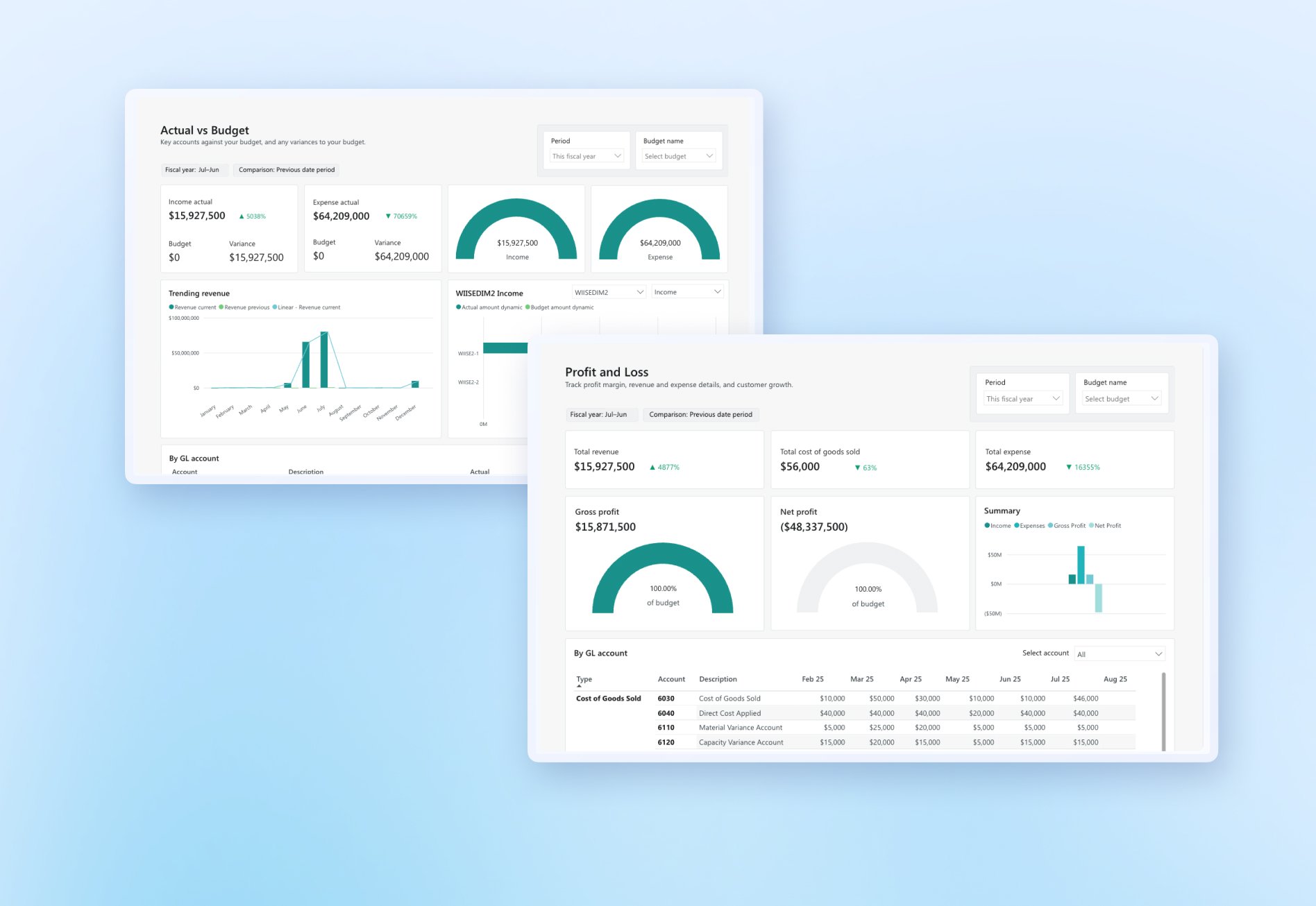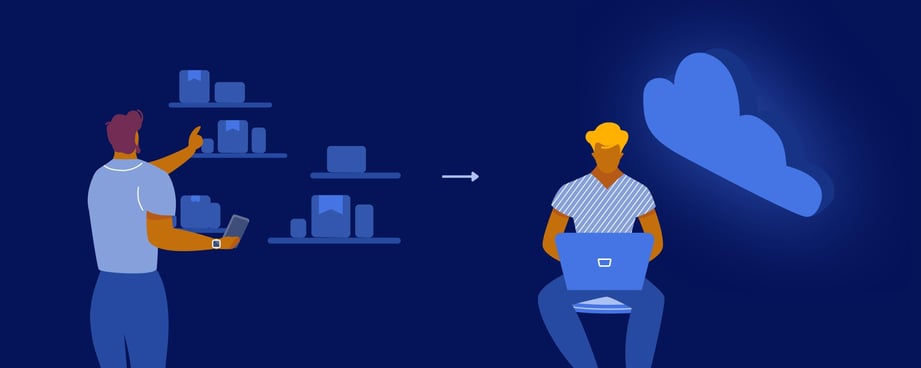For growing businesses, the question isn’t if you’ll need an ERP system, but when. But, as one of the most important IT investments your business will make, putting off an ERP implementation can come with heavy consequences. In this post, we'll cover:
- 3 ERP implementation myths
- 5 signs you need an ERP system now
- Time to invest in a cloud ERP
- Need more help choosing an ERP?
Moving to an ERP system is a big project that requires adequate time, planning and investment. Many start-ups can manage with simple accounting software and might consider moving to an ERP too soon to be an unnecessary disruption.
(If you’re still deciding whether you need an ERP, check out our previous posts What is an ERP? and Which ERP is Right for My Business?).
Successful businesses quickly grow in size and complexity – and putting off the move to an ERP can put your future growth at risk. If your business is struggling with paper-based processes, frequent outages and limited visibility of crucial information – you need to switch to an ERP system as soon as possible.
3 ERP implementation myths
Here are some of the common myths we hear from businesses looking to delay an ERP implementation:
-
'My business is too small for an ERP system’
You don’t have to be a large or complex business to start thinking about implementing an ERP system. The reason to avoid the ‘not-big-enough-for-ERP’ trap is that the larger your organisation gets, the more complex your processes and therefore your technology stack will be.
Putting ERP infrastructure in place when you first start seeing signs of growth will not only be significantly easier, it will also end up being a lot more cost-effective (both in terms o upfront costs and downtime). Modern SaaS-based cloud ERPs are scalable which means you can start small and expand the scope of the solution to suit your needs.
-
‘We’re too busy to implement an ERP at the moment’
When you implement a new ERP system, an IT team will storm your office, take over your computers and ban your teams from completing any work while they physically install the ERP system - right? Wrong.
Cloud-based ERP solutions are faster to implement as they don’t require any changes to your hardware. In fact, the average ERP implementation takes just 3-9 months to complete. Most businesses enlist the help of an IT services provider (also known as an ERP implementation partner) – an external team of implementation specialists who will be able to provide full guidance and support throughout the project, as well as completing the ERP system set-up itself.
-
'I can't afford an ERP right now'
What does your current tech stack cost? (Hint – it’s more than a cloud ERP system).
Most businesses tend to buy new tools and technologies as and when they need them, to fix a specific challenge. Before long, the costs of multiple subscriptions, applications, standalone solutions – plus frequent upgrades and updates – quickly add up.
One of the many benefits of cloud ERPs is that maintenance costs are covered by your ERP system vendor – enabling you to categorise the cost of your cloud ERP system as operating expenses (OPEX) rather than capital expense (CAPEX).
Since cloud ERPs are designed specifically to help businesses to become hyper-efficient, the long-term cost savings of an ERP system will quickly exceed the upfront investment. The sooner you implement it, the faster you'll be able to see returns on your investment!
5 signs you need an ERP system now
Whether you’re an owner looking to grow the business, a financial controller looking for better reporting or an employee looking to speed-up day-to-day tasks – here are 5 signs your business needs an ERP system as soon as possible:
-
Staff struggling with time-wasting admin and slow processes
Most employees simply want the tools to be able to do their jobs well. If your teams have to physically update information in several places or manually combine data from multiple places in a spreadsheet, chances are they’re frustrated – and you're paying skilled staff to do data entry work.
An ERP system ensures that data entered just once flows right through the system, giving everyone access to updated and accurate information. It also automates processes like order management and payments and can be set up to notify team members to complete certain tasks. Not only does this increase information accuracy but makes processes a lot quicker. - Low confidence in decision-making and poor reporting
If you're often only hearing about issues well after they have occurred, you're putting yourself at a constant disadvantage. Built-in analytics in modern cloud ERP solutions turn the information already in your system into actionable insights that help you see everything from your cash runway to how various departments are performing and more.
When you invest in an ERP system, you're investing in real-time business intelligence that helps you be prepared for unforeseeable events. - Slow transaction speeds and regular outages
While lots of businesses struggle with performance issues that are common in old accounting software, not all are able to see or quantify the negative impact these outdated technologies could be having on business growth.
Modern ERP systems have the ability to process unlimited transactions, store unlimited items of inventory and more. Leading cloud ERP vendors also roll out continuous enhancements including platform upgrades and new features, which ensures that you're never relying on an outdated solution to run your business. -
Your IT infrastructure is high maintenance and costs too much
Not only does using standalone solutions to manage key business processes impact productivity and create blind spots that hamper decision-making, it also comes with a hefty price tag. In addition to customisation and integration costs, you'll also be paying for software patches and security upgrades.
With a cloud ERP solution, you won’t have to pay for security updates and integrating new tools, as your business evolves, will be a lot easier with APIs. - Disconnected systems, poor customer service
When you use separate systems for sales, inventory and CRM, you risk negatively impacting your customer service. Without access to the same, up-to-date information across the board, your customer service teams might struggle to answer customers’ queries about stock availability and order status, and might need to check with different departments.
A centralised database that captures up-to-date information from across the business and makes it accessible to key team members can ensure your customers have a positive experience every time which allows them to see your business as being reliable and trustworthy.
Have a question?
Have a specific question about how your business could benefit from moving to an ERP solution? Ask our friendly team today support@wiise.com or 1300 191 222.
Time to invest in a cloud ERP
Making the decision to finally implement an ERP system may feel like a daunting prospect, but it doesn’t have to be. A cloud-based ERP system will solve your most pressing challenges but also sets your business up for growth.
With visibility over every part of your business, your teams will be able to work more efficiently and with a lot less friction. By using built-in analytics to generate real-time insights, you'll be in a better position to steer your business in the direction you want it to go.
To find out more about how your business can benefit from an ERP, check out our previous blog posts:
- What is an ERP? Enterprise Resource Planning Explained
- How Will an ERP Meet My Business Needs?
- Which ERP is Right for My Business?
To help kick start your internal discussions around your team's ERP requirements, download our handy ERP requirements checklist.
Alternatively, get in touch with one of our friendly Wiise team members to find out how Wiise ERP can meet and exceed your business needs.
Ready to learn more?
Book a demo call with one of our friendly team members.




